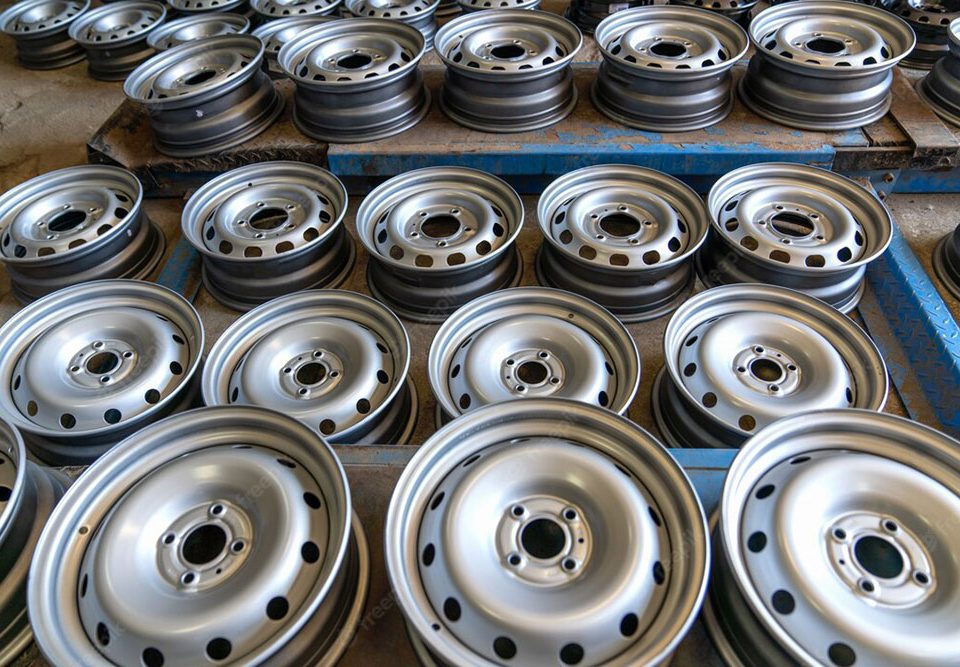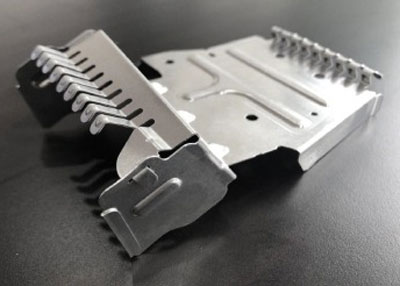Types of Stamping Presses

Mechanical
A mechanical flywheel and a motor are used in mechanical presses to move and store energy. Depending on the specific press, its punches can be anywhere between 5 mm to 500 mm in size. Although mechanical presses tend to be faster than hydraulic presses, their pace varies as well, normally falling between 20 and 1,500 strokes per minute. These presses come in a variety of capacities ranging from twenty to 6,000 tons. They work effectively for creating shallower and simpler parts of sheet metal coils. They are usually used for large-scale progressive and transfer stamping.

Hydraulic
Pressurised hydraulic fluid is used in hydraulic presses to exert force on the material. A hydraulic press can exert pressure with greater precision and consistency than a mechanical press because hydraulic pistons move fluid with a force proportional to the diameter of the piston head. They can often produce their full power at any point in the stroke and have adjustable stroke and speed capabilities. These presses usually range in size from 20 to 10,000 tons and have stroke sizes between 10 and 800mm.
Mechanical Servo
High-capacity motors rather than flywheels are used in mechanical servo presses. They can produce more complex stampings at a faster speed than hydraulic presses. There are controls and programming options for the stroke, slide position and action, and speed. Either a direct drive system or a link-assisted drive system powers them. Of the three types of presses mentioned, these are the most expensive.
In Cbliss Penang, Malaysia, we can help to provide the metal stamping services according to your industry needs. Contact us to find out more about how we can help you.




